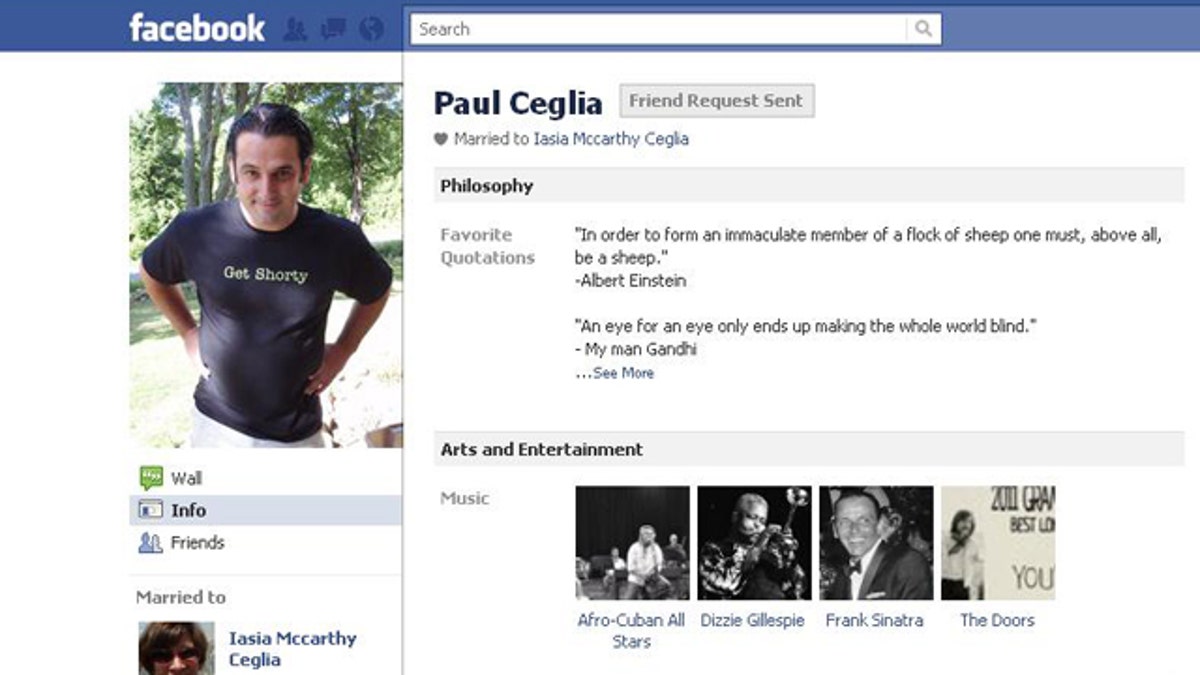
A screenshot of Ceglia's Facebook page.
BUFFALO, N.Y. – A New York man who claims he and Facebook founder Mark Zuckerberg made a deal nine years ago that entitles him to half-ownership of the social networking giant won't be allowed to question Zuckerberg or search his computers at this point in his federal lawsuit, a judge ruled Wednesday.
Paul Ceglia's lawyers will get the chance, though, to grill Facebook's experts about their findings that Ceglia's lawsuit is based on a fake document.
A federal magistrate judge issued the ruling following the latest round of legal arguments in a case with potentially billions of dollars at stake.
Palo Alto, Calif.-based Facebook last month filed a motion to dismiss the case, based largely on its experts' findings that cast doubt on the authenticity of a two-page contract at the center of the dispute.
In his 2010 lawsuit, Ceglia claims that he and Zuckerberg signed the document in 2003, when he hired Zuckerberg, then a Harvard University freshman, to help him develop a street-mapping database. According to the Ceglia, the contract includes language showing he also gave Zuckerberg $1,000 in startup money for his Facebook idea in exchange for half-ownership of the company if it grew.
Zuckerberg has countered that he hadn't even conceived of Facebook at the time. His lawyers have accused Ceglia of doctoring the street-mapping contract to insert Facebook references, citing evidence challenging the age of the ink and other details.
Magistrate Judge Leslie Foschio told Ceglia's attorney, Dean Boland, to submit his experts' reports on the contract in two months.
Each side will then get the chance to challenge the other's findings.
Boland had argued he should also be allowed to question Zuckerberg as he seeks to prove his claims, and to search the computers Zuckerberg used while a student at Harvard.
"We are very pleased with today's ruling," said Orin Snyder, a New York attorney representing Facebook and Zuckerberg. "The court denied Ceglia's request for broad discovery and continues to focus these proceedings solely on the question of Ceglia's criminal fraud."
Ceglia's attorneys welcomed the chance to challenge Facebook's experts.
"We are hopeful that once we have obtained and presented this information, the court will deny the defendants' motions to dismiss and allow the case to proceed to full discovery and an eventual trial," a statement from the lawyers said.
Ceglia has not attended a series of court sessions as his case has moved forward. His parents were at Wednesday's arguments but declined to comment afterward.
